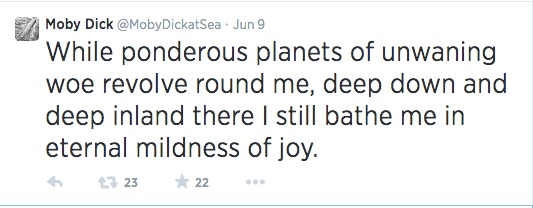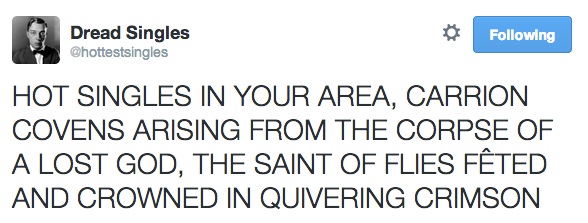This week I read about the newly published JRR Tolkien translation of the epic poem Beowulf which touched several ideas I find interesting, particularly about translation. I think it is a well worn trope that things get lost in translation but what is important is that translation IS possible, especially in literature. It is the human experience after all that is essentially common to us, and language. So perhaps we in the United States will never understand the words for the fine gradations of types of snow, or the German word for how life is like the bit of burnt coffee in the bottom of a mug (I made that up) but we do incorporate other words into our vocabulary from other cultures (like schadenfreude) and it enriches us. As we have learned from psychology, to be able to define or describe a variety of emotional states allows us to feel more feelings, leading to a more enriched interior experience. This is the ultimate translation.
Articles
- JRR Tolkiens “new” Beowulf translation by Joan Acocella ReviewI can’t wait to read this translation, having loved the Seamus Heaney version.
- War and Peace translated by Pevear and Volokhonsky reviewed by James Wood ReviewVery interesting article about the husband/wife translators approach. I listened to this incredible novel on audible (the Constance Gardner translation) and compared certain sections to the Pevear/Volokhonsky translation. There definitely were some differences, and I like to re-read certain sections of their translation. I think a book like the Brothers Karamazov is more susceptible to failures of translation, Gardner is criticized for making the books more narrative and “Victorian” although in War and Peace this doesn’t seem particularly problematic. I think Pierre’s and Prince Andrey are the characters whose interior lives we find most compelling and the descriptions of their experiences may suffer slightly in Gardner’s version.
- Perfidious Fidelity by Sarat Maharaj ReviewThis is an essay I read in grad school that I come back to from time to time when I think about translation. Here is a paragraph that will hopefully entice you to read the whole thing: Translation, as Derrida therefore puts it, is quite unlike buying, selling, swapping – however much it has been conventionally pictured in those terms. It is not a matter of shipping over juicy chunks of meaning from one side of the language barrier to the other – as with fast-food packs at an over-the-counter, take away outfit. Meaning is not a readymade portable thing that can be ‘carried over’ the divide. The translator is obliged to construct meaning in the source language and then to figure and fashion it a second time round in the materials of the language into which he or she is rendering it. The translator’s loyalties are thus divided and split. He or she has to be faithful to the syntax, feel and structure of the source language and faithful to those of the language of translation. We have a clash and collision of loyalties and a lack of fit between the constructions. We face a double writing, what might be described as a ‘perfidious fidelity’ or, to use Joyce’s words, a ‘double-cressing’ loyalty – tressing, cross-dressing, double-crossing, treacherous.
Podcasts
- Slate Lexicon Valley ReviewIf you are interested in language, this podcast is both amusing and fascinating – tackling current “issues” like vocal fry and upspeak as well as historically significant moments like translating the Cherokee language into writing. SUBSCRIBE TO FEED
Books
- Grendel by John Gardner ReviewI can’t mention Beowulf without recommending this incredible book. I devoured it in an afternoon and I am forever changed. Told from the perspective of Grendel, the monster plaguing the Danes, it is a tale of loneliness and anguish. Perhaps this ties in nicely with the theme of translation, how can this monster bridge the gap between his world and those of the great hall he menaces. Even the non-violent interactions are upsetting to put it mildly. What a poignant and beautiful book.
Moby Dick Deep Dive
- I recently re-listened to Moby Dick on audible.com and I know, you’re thinking why am I talking about Moby Dick!?! But hear me out! MOREMoby Dick is a wonderful book, although to make it more enjoyable it could/should be read in an edited way. There are long and tedious sections explaining the “art” of whaling and the various subtleties of the whaling vessel, the division of labor, etc. that belong in a more more boring book or manual on whaling. It is one of those books that is foisted on us in High School when we are too young to absorb or appreciate it. Melville justifies the more tedious sections as necessary but his warning about interpretation are also useful: “So ignorant are most landsmen of some of the plainest and most palpable wonders of the world, that without some hints touching the plain facts, historical and otherwise, of the fishery, they might scout at Moby Dick as a monstrous fable, or still worse and more detestable, a hideous and intolerable allegory.” That said, if you skip the sections about whaling, it is a beautiful book.
There are simply too many beautiful passages to quote but Melville is both a keen observer of humanity and a poetic writer that I kept wanting to book mark each page for passages that are just perfect. Here are my two favorites, both from the chapter “The Gilder”:
“At such times, under an abated sun; afloat all day upon smooth, slow heaving swells; seated in his boat, light as a birch canoe; and so sociably mixing with the soft waves themselves, that like hearthstone cats they purr against the gunwale; these are the times of dreamy quietude, when beholding the tranquil beauty and brilliancy of the ocean’s skin, one forgets the tiger heart that pants beneath it; and would not willingly remember, that this velvet paw but conceals a remorseless fang.”
“Oh, grassy glades! oh, ever vernal endless landscapes in the soul; in ye,—though long parched by the dead drought of the earthy life,—in ye, men yet may roll, like young horses in new morning clover; and for some few fleeting moments, feel the cool dew of the life immortal on them. Would to God these blessed calms would last. But the mingled, mingling threads of life are woven by warp and woof: calms crossed by storms, a storm for every calm. There is no steady unretracing progress in this life; we do not advance through fixed gradations, and at the last one pause:—through infancy’s unconscious spell, boyhood’s thoughtless faith, adolescence’ doubt (the common doom), then scepticism, then disbelief, resting at last in manhood’s pondering repose of If. But once gone through, we trace the round again; and are infants, boys, and men, and Ifs eternally. Where lies the final harbor, whence we unmoor no more? in what rapt ether sails the world, of which the weariest will never weary? Where is the foundling’s father hidden? Our souls are like those orphans whose unwedded mothers die in bearing them: the secret of our paternity lies in their grave, and we must there to learn it.”
And how strange/beautiful are these lines: “Oh, immortal infancy, and innocency of the azure! Invisible winged creatures that frolic all round us! Sweet childhood of air and sky! how oblivious were ye of old Ahab’s close-coiled woe! But so have I seen little Miriam and Martha, laughing-eyed elves, heedlessly gambol around their old sire; sporting with the circle of singed locks which grew on the marge of that burnt-out crater of his brain.”
My mind reels, that is all.
- Digitally annotated Moby Dick called Power Moby Dick where you can read “The Gilder”!
- There are about 10 unabridged versions of Moby Dick on Audible.com. Dana Stevens of Slate.com fame recommends the version read by Anthony Heald. I listened to the Norman Dietz version. You can’t go wrong with either!
- Follow Moby Dick on Twitter



